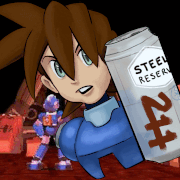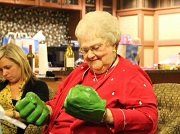|
on a bathroom floor? I think it was a tweet by his wife or something, but it seems to strange to be real.
|
|
|
|

|
| # ? Apr 25, 2024 11:41 |
|
who
|
|
|
|
i have good news
|
|
|
|
you're still high
|
|
|
|
grandma you have to type the searches into the google bar not the posting part
|
|
|
|
hi i am glad you posted this. this is todd. how can i help u?
|
|
|
|
mike jones
|
|
|
|
Sir, this is Dell tech support.
|
|
|
|
Sir this is a Cinnabun drive through
|
|
|
|
|
That was Slavoj Zizek
|
|
|
|
hi i am glad you posted this. this is bathroom floor. how can i help u?
|
|
|
|
How often have you heard yourself say, "I'm a giver, not a taker"? Have you experienced discomfort when receiving something from another~ whether it's a gift, a compliment or a kind gesture? Have you ever known what it feels like to be in a reciprocal relationship? If these questions trigger memories of awkward, familiar sensations, it means you were programmed as a small child to believe that receiving vital supplies of attention, affection and emotional support came at a substantial cost to your parent(s). Very young, you learned to accommodate and normalize these painful deficits and started putting the needs of others ahead of your own, because doing otherwise meant you'd have to endure feelings of guilt or shame. You might identify yourself as a 'rescuer type' personality, but you were not born with this trait. It was cultivated in you from an early age, and it's directly due to faulty relationship dynamics with an impaired parent (or two). Were you raised in a home where everything you did was closely monitored or controlled? Did you grow up feeling as if you had to be perfect, to please your mother or father? What was the cost to you, if (God forbid) you ever failed to perform well enough for them? Might you have feared the loss of their affection, approval or love? As you read through this material, you might experience sudden sleepiness or a little sadness. This is a somatic (biological) response in your body, which indicates that a facet of you is relating to various issues being discussed or explained here, and they have very important meaning for you. While you may choose to take a short break, rest assured that there's nothing to fear from these uneasy feelings, and I encourage you to continue. For the sake of continuity and cohesiveness, you'll get the most value from this information, if you return to the hyperlinks that take you to other pages after you've finished reading this entire piece. Treat it like a self-help book. Give yourself several weeks to absorb this material from start to finish. ALL LIVING CREATURES HAVE NEEDS~ EVEN YOU! A fairly large number of clients have reported that throughout their life, their mother commented on what a 'good baby' they'd been; "you never cried" is what they were repeatedly told while growing up. All babies have substantial needs, and they cry to alert their parent to what's required concerning food, diapering, holding/comforting, warmth, etc. If the baby never cries, we must ask why. Did it feel unsafe to express these vital needs? Did we sense we might not survive, if we inconvenienced our mother by having any needs? As this child grows, could he mistakenly presume his utter silence and refusal to have needs, is an admirable and good thing? None of us grew up being perfectly parented--in fact it's virtually impossible to anticipate that this could even happen. Alas, we are all products of our experiences, which have impacted us to one degree or another, and that's what this piece attempts to address. There will likely be parts of this article that you'll relate to, and other parts you won't--but if any of this material opens a doorway to greater self-awareness, healing might begin for you, your child, parent or spouse~ and that's my objective. This literature is extraordinarily dense with meaning, and must be absorbed very slowly, to help you understand why your love affairs haven't worked out the way you've wanted them to. It's best that you read no more than a few paragraphs per day--then ask yourself; what's this segment trying to teach me about myself? so that you can learn, and actually benefit from it. With every review of this piece, you will gain deeper understanding of yourself, and be able to emotionally integrate far more of it~ so why stop with only one reading? When you're a self-proclaimed "giver," it means you were raised in a home where vital and important emotional needs were not acknowledged or adequately responded to, and you've attempted to compensate for this deficit, by becoming a caregiver. Even if you saw that your parents were overburdened in some way, you might have tried to become an 'invisible' child, so as not to place more demand on them, or risk incurring painful repercussion for having any needs of your own. Perhaps you had a parent who always put the needs of a spouse, neighbor or friend far ahead of their own (and yours), and as this was the example set for you, it's what you've emulated. It's just what 'good people' do~ or so you've been taught. As a small child, you may have discovered that taking care of another's feelings or needs provided vicarious satisfaction, and a sense of self-worth, empowerment, and well-being or safety. As an adult, whether you've promoted another's dependency on you emotionally, physically or financially, feeling needed has fortified your self-esteem~ but it has also eased abandonment anxiety, which is central to your compulsive giving or 'fixing' behaviors and disappointing or disastrous relationship experiences. AS THE TWIG IS BENT, SO GROWS THE TREE. Wounds to one's sense of Self throughout infancy and early childhood, are often referred to as core damage/trauma or narcissistic injury, within the body of this text. In simple terms, having core issues means that the 'hub' of your wheel has been broken or damaged in some manner. When the very center of your being is compromised, all the spokes which emanate from this point will be weak, and susceptible to breaking under any amount of strain or pressure. Core trauma impacts every aspect of our existence, as it shapes self-worth, and influences how we think about and take care of ourselves, within professional and personal relationships. A small child has no way of relating to or making sense of the words, "I love you." These words literally mean nothing, if they aren't consistently and simultaneously backed up with parental gestures of affection and warmth, which are congruent with their meaning. The core damaged child might ask his mom or dad, "do you love me?" The parent's response may be, "of course I do, you're my kid!" but a child who's looking for confirmation that he is loved, is one who cannot actually feel or believe that he is! This adult child will go through life feeling dependent on verbal validation and confirmation from others. From infancy onward, he's lacked vital supplies of affection and praise, from which he would have learned beyond a shadow of a doubt, that he was valuable and lovable~ and from that, gained the capacity to self-validate. Since core trauma results from poor or inadequate parenting from the onset of life, this kind of wounding inhibits a child from feeling lovable or worthy of receiving care, which inevitably causes attachment struggles in adulthood. Unfortunately, no amount of 'insight' on this topic can mend core issues, for what's needed is solid re-parenting to replace the faulty original template we grew up accepting as 'normal' throughout childhood. Core injuries are literally maintained as a relationship problem, which requires healing resolution within a corrective, therapeutic relational bond. We cannot resolve core wounding without highly specialized care and guidance, along with the unique opportunity to acquire specific, effective self-worth building tools to heal the child-self that remains in all of us, lifelong. Standard modalities of treatment (i.e. psychotherapy, analysis, cognitive-behavioral work, etc.) may not dismantle core trauma, for resolution requires healing the Heart that's been damaged in infancy and throughout childhood~ not the head. THE CLONE CONSPIRACY Narcissism in parents is the primary cause of psychopathology in our society. The narcissistic parent wants a child who's exactly like him or her~ a carbon copy or clone so to speak. If this kid has different values and personality features than the parent, he's regarded with disappointment and disdain or disapproval, and criticized or punished. It's challenging for any parent to bond with a child who's unlike him/herself, but the narcissistic mother or father treats it like a sin, and their 'prodigy' grows up never feeling good enough or lovable, just for being himself. This issue is typically passed along generation to generation, which is why so many talented young people are urged (often against their will) to echo the parent's career choice or take over the family business, even if they have no natural ability in that arena, or passionate desire to follow a parent's path. Depression in teenagers and young adults is most often due to feeling like they can never live up to a parent's expectations, if they have wishes and dreams that aren't congruent with Father's or Mother's. Hence, pleasing one's parent routinely takes precedence over pleasing oneself, and core issues having to do with this child's diminished sense of worth are cemented. Sadly, a parent might attach more fully to the child who echoes his/her own more favorable traits~ but reject or criticize a child's less favorable features like depression, inertia or anger for example, that the parent has failed to recognize and accept in him or herself. The narcissistic parent is insecure. God help the adult child who surpasses his parent's achievements, for this can easily inspire malicious competition from the envious parent toward his/her offspring. A cloned child gets set-up for feeling damned if he accomplishes, and damned if he fails~ which often catalyzes self-sabotaging behaviors, as it's somewhat easier to accept a parent's dismay or disappointment in our imperfect performance, than to incur his or her resentment and jealousy, if we excel. On a subconscious level, we'd essentially prefer our parent to be 'right' about us, rather than risk becoming empowered and truly well. This clone issue has far reaching ramifications with respect to our adult relationship choices. It clouds our judgment, in terms of how much criticism and rejection we will accommodate from romantic partners, as this is what feels normal, based on faulty programming we received as kids. No matter how much abusive treatment our partner dishes out, it doesn't hold a candle to how critical and shaming we've learned to be to ourselves! We believe this lover/spouse is our "soul mate" and a perfect fit for us, because they treat us as dreadfully as we treat our Self. They seem to share our opinion of what we've been programmed since infancy to think we deserve, which feels like a match! Still, we desperately try to change their mind, please them and win their approval and affection as we undoubtedly had to do during childhood, which can exhaust us or make us physically ill~ and literally, cause our premature demise. Unfortunately, our painful inner torment that's long associated with unresolved childhood entitlement issues ("I'm not worthy or deserving of receiving what I need and want"), regularly inserts itself into our professional life, as well~ and blocks our ability to manifest prosperity and success. This present day obstacle feels agonizing to us, because it confirms every shameful deficit we were programmed to believe about ourselves, as children. THE PAINFUL INNER CONFLICT OF THE TOO GOOD CHILD A child who's grown up believing they have to behave perfectly in order to receive attention, affirmation or praise, has acquired a distorted definition of love. For this child, Love means painful longing and yearning for that which cannot be gratified. Thus, this same type of emotional experience is intoxicating in his/her adult attachments, for their present anguish is literally identical to feelings that he/she experienced throughout childhood, which are now interpreted as 'the real deal,' or True Love. This means, lovers who are capable of reciprocating their care and affection, are rejected out of hand. It's boring and doesn't feel like a fit, because this dynamic doesn't trigger the dramatic inner pain that was consistently associated with loving, as a kid. Core-damaged children grow into needful adults, but they could fear that if they let themselves love somebody as intensely as they want to, that person will freak out, run off into the night, and abandon them. Their sense of need feels gigantic, and often very painful. It presumes that someone on the receiving end won't be able to handle it--which triggers shame for being "so needy." This shame makes one want to shut-down/kill off their needs (or control them), which is a defense that has one giving to others, what he/she is starving to receive. It also has them choosing emotionally unavailable partners who reactivate chaotic, painful sensations that reinforce childhood abandonment and/or abuse trauma, and the core shame they've carried lifelong. Every core injured adult child has to live with the tormenting, inescapable question: "Am I good enough to be loved by you?" Personality disordered individuals have worked especially hard since childhood, to convince themselves they're lovable. They've honed their talents, abilities and seduction skills to compensate for a shame based inner sense that they're defective, which has resulted from years of inadequate or unwholesome parenting. Again, entitlement issues emanate from poor self-worth, and our inability to feel deserving or worthy of receiving what we need and want. Having healthy self-esteem means that we're equally as comfortable 'getting' as giving. Our desperate, unrelenting quest to gain acceptance and approval from others so that we can feel good about ourselves, is central to compulsive giving, fixing and rescuing behaviors. A lack of Self keeps us trying to fill the hole in our soul at any cost, with unsuitable partners who highlight core insecurities we've retained since we were toddlers. 'Wounded Bird Syndrome' is an intricate relationship problem. It involves our subconscious need to select and remain with someone who's impaired in some manner, and isn't likely to leave us for someone better. It's driven by our deep sense of inadequacy, and accompanying wish to avert abandonment. This poor self-worth issue is implanted in early childhood, by a needy parent who required our comfort and concern for their feelings, but wasn't capable of giving that kind of attention to us. The act of taking care of another, helps you access emotions like sympathy and compassion for someone else that you've never had opportunity to receive, nor have you permitted yourself to feel these emotions toward yourself without shaming criticism and self-judgment. Displacement of an emotion (like sympathy) onto another when it's a disowned or destroyed feeling inside of you, is called projection. Maybe you grew up with a depressed mother or father, and you did whatever you could to ease their sadness or cheer them up, with the secret hope that you might eventually get the affection, care and playfulness you required. Perhaps this parent felt over-burdened by their spouse or one of your siblings, who acted-out their painful inner despair by getting into trouble a lot~ and by contrast, you tried to be "the good child." Your efforts to please, and excel in school mostly went unnoticed and unrewarded, and if your parent eventually became sick and died or they committed suicide, you might have grown up feeling guilty/responsible for not having prevented it, and your Savior Complex was born. Caregivers are 'easy marks' for individuals with personality disorder features, mostly because they grew up with an impaired parent who was incapable of meeting their needs for bonding. Their inability to recognize, respect or honor their own feelings, instincts and needs leaves them highly susceptible to engaging relationships that lack emotional reciprocity. THE GRASS ROOTS OF AN INTRICATE, ANCIENT GARDEN Every child who experiences deficits in nurturant care, attention, encouragement, affection, positive mirroring, etc., from his parent, presumes it's his/her fault, and experiences shame ("I'm not good enough or lovable"). This child grows up with the belief that if he/she tries just a little harder to gain these emotional supplies, they will be forthcoming. Up to a point, this has them efforting to be perfectly helpful and useful~ but acknowledgment and appreciation are never forthcoming. The parent might praise an accomplishment, but does not convey the intrinsic lovability of this child, which reinforces his ideation that he must 'do,' in order to receive acceptance and love. Some of these kids experience performance fatigue, and give-up trying to get parental acceptance and recognition needs met~ but carry the very same behaviors into their adult associations! Their painful hope that someone, someday will find them worthy of loving has them chasing after it often against all odds, in romantic partnerships. If they manage to find a partner who can initially mirror their worth, it concretizes that it might not have been their fault they lacked the love they hungered for during childhood, after all. The problem with this subconsciously driven need for validation, is that they're prone to remaining with lovers who are cut from the same cloth as the people who raised them~ so their end result is consistent and identical. These partnerships reconstitute their original shame from parental neglect and/or abuse. Their constant need to flee this awful feeling of shame, perpetuates an unrelenting compulsion to obtain love from partners who are as incapable of supplying it as their parents had been, as this is what feels natural and 'normal' to them. This issue is exacerbated, when harsh treatment from one of our parents is not only permitted, but is sanctioned by the other with; "he/she really does love you." This is terribly confusing for a small child, for he/she experiences pain at the hands of Mom or Dad, but is repeatedly told that "it's Love." This skewed definition of what love is, taints our perceptions and sets us up for a lifetime of accepting that pain in a relationship is to be expected~ and that anguish is a normal part of loving! Any parent who's whitewashed the other's abusiveness, has screwed up their child for life~ for he will always lack common sense and distrust his instincts, unless/until solid, core healing intervention is obtained. When a client tells me they had a "perfect childhood," or that his/her parents had an ideal, long-term marriage, I know we've got challenging work ahead. The reality is, if this were true, they would not be struggling to form healthy attachments--and they definitely wouldn't be needing My help! Denial keeps us trapped in self-blame for our failings, instead of putting the blame where it actually belongs. It also keeps us addicted to dramatic, painful relationship experiences. There's no such thing as "love addiction." What exists instead, is an addictive compulsion to catalyze feelings of infatuation, which are about one's capacity to fall in love with him/herself, under the adoring gaze of a desirable other. This sensation is fleeting and transient, and has nothing whatsoever to do with genuine feelings of love or affection for someone else. BUYING INTO THE UNIVERSAL SOCIETAL MYTH You may have convinced yourself that your parents "did the best they could" but if that's so, why are you having to invest all this time, money and effort in therapeutic treatment and a litany of self-help venues, just to feel okay about yourself?? I hear all the time, from people who say "I know my mom or dad loved me!" How did you know this? What evidence do you have to support beyond a shadow of a doubt, that you were loved by your parent? How much physical affection do you recall receiving when You (not your parent) needed to experience closeness? A child needs to feel valued by his/her parent. He needs to see welcome on the parent's face when he enters a room, and feel like he really matters, and is adored. Very few of us ever got to experience this--in fact, what we consistently saw instead, were expressions of indifference or annoyance, and this shaped how we grew up feeling about ourselves! In reality, your parents showed you a distorted reflection of yourself, and you've trusted it as accurate: "How could Mom and Dad be wrong about me~ don't they know me better than anyone else does??" When we repeatedly feel confusion, disappointment or distress in childhood, we have to normalize those experiences in order to survive them! We typically stow away these difficult feelings or make them not matter, so we're able to coexist with a variety of upsets and the impaired parents who're responsible for them. These childhood survival strategies remain intact throughout our adulthood, which can spawn serious clinical issues like Anxiety Disorder, obsessive-compulsive features, attachment difficulties, bad partner selection, addictions, personality disorder traits, etc. When feelings are put away in childhood, our emotional growth is stunted. As we can't help but be drawn to partners who echo our earliest life experiences and match our level of emotional development, we're naturally attracted to others who are as underdeveloped and damaged as we, which sets us up for failure in our love life. These unions seem familiar and 'normal' to us, so there's an exciting and compelling drive to maintain them. This element is discussed in greater depth toward the end of this literature--but the following will help you better understand why you've landed here. I'm always astonished, when I work with clients who have any trust in God or sense of spirituality, after they've survived horrible neglect or cruelty at the hands of their parents. To a small child, the parent IS a god--someone he/she instinctively trusts implicitly, to protect and care for them. The stories I hear of the pain these adult children have endured are heartbreaking, and I'm utterly amazed by their willingness and capacity to even approach trusting me. A few of my clients have chosen to share this material with their parent. If You are a parent, and your grown child has gifted you this material or you've found it by chance, there's a strong likelihood they're needing your apology for painful childhood issues they've struggled to surmount. If you're wanting to build a closer bond with him or her, any attempts to make amends must be heartfelt--and made without explanations or excuses! The reasons you weren't 'equipped' to do it differently or better, are of no use in context of easing the pain they still carry. In short, this effort can't become about you and your struggles, for while they may have empathy and compassion for your plight, they're still wrestling with unresolved wounds and trust issues that you have spawned. Healing is only possible, when someone you've hurt (even unwittingly) can feel your sincere remorse. While this process won't be easy, it can go a long way toward helping you repair any relationship where trust has been undermined. THE CAREGIVER PERSONALTY EQUATES BEING NEEDED, WITH BEING LOVED. Your caregiving nature is drawn to codependent relationship dynamics with friends or lovers who are either handicapped, in crisis, emotionally/sexually underdeveloped, substance addicted or in recovery/rehab. You've unwittingly selected partners whose self-esteem is flagging, or whom in some way need rescuing or extreme amounts of support or nurturing. Quite often, feelings of boredom or emptiness will prompt phone calls to friends who allow you to fuel/fix them with 'pep talks' that include emotional or psychological bolstering, and you feel lighter and/or revitalized afterward. Occasionally, you might romantically connect with someone who initially shows promise or "potential," only to be disappointed and angry at the end of this relationship, having carried the financial and/or emotional weight for both of you! The subconscious theme that underlies this predestined pairing process is: "If you NEED me, you'll never leave me." In the rare event a selected lover presents as self-sufficient and non-needy, a Caregiver type is still compelled to encourage some level of dependency. This may be demonstrated by attempts to subtly undermine a partner's confidence in wardrobe preference, body image, eating or dietary habits, work proficiency, sexual adequacy, etc. Basically, if there's opportunity to create at least the illusion of being indispensable and needed, our abandonment concerns are averted. This behavior is driven by a subconscious determination to maintain inequity within all our relationships, for the one who needs the least is always the one in power. Partners may unwittingly undermine themselves by losing jobs, getting sick or injured, etc., to be complicit with the 'one-up' dynamic you've needed to maintain in the relationship. There's always a payoff in this--as the unspoken agreement or 'contract' that was created when you two first joined remains unchanged, and neither of you has to budge from your established role, or comfort zone. When a mate/partner is perceived as diminished (or less than) you feel more secure, in that you can control the relationship dynamic and manipulate its emotional climate to suit internal comfort levels. In truth, feeling needed is enhancing to your self-image, and reinforces a sense of well-being/safety, but if a lover gains some genuine empowerment and develops a more equal footing, your Caregiver prowess is suddenly diluted. This is when your emotional equilibrium feels compromised and abandonment anxiety surfaces~ which prompts either sabotaging or clinging behaviors. Selection strategy insures against this unfavorable outcome, as you will turn away from lovers or friends who are capable of meeting you on a more balanced playing field. Healthier choices require authentic self-esteem, which you may never have had opportunity to develop. You'll naturally guard against anybody discovering this secret, as covert shame, a remnant from your childhood, steers you away from more viable, fully-integrated people who might notice your fragility and/or shortcomings, and find you as "unworthy" of their love as you do. This is not true, incidentally~ it's just your own sense of inadequacy that's being projected onto them. It's how you assume they'll view you. But what's at the core of this issue?? Being loved in totality is something that Caregivers do not fundamentally believe is possible, as "negative" or less appealing traits and feelings have been suppressed since infancy, in effort to gain more affection or care, and mitigate fears of rejection or abandonment. Essentially, this kind of child has been emotionally blackmailed into responding to the needs of his/her mother, and personality aspects that were difficult or inconvenient for her to tolerate, have been surrendered or discarded. Even if Mom just wanted to shield her spouse/pertner from any form of agitation, her child is conditioned to accept/believe that specific facets and feelings are unacceptable, wrong and bad. As he matures, he will internalize and adopt this attitude toward himself. Even subtle awareness of the presence of these aspects or feelings makes him feel unlovable and "bad," so he virtually amputates them out of his personality and becomes a People Pleaser, which can cause serious health repercussions. Various cancers, stomach/intestinal issues, glandular difficulties, rheumatism, migraine headaches, Anxiety/Panic Disorders and adult acne are only a few of the ailments that are triggered by long-held resentment and repressed rage. It's not that anger is wrong or bad, but it's harshly self-judged, and eradicated from one's persona. Non-acceptance of any type of human emotion has one forging and maintaining a partial personality, instead of a whole one. Partial personalities are attracted to dimensions and aspects in others, that are absent in themselves. Think of a jigsaw puzzle searching for its own missing pieces in another, that houses a greater variety of shapes and colors, which is key to why they attach themselves to lovers who possess volatile, cruel or fragile personality facets. In short, our natural human desire for a sense of completeness has us drawn to traits in others that we can't/won't own--rather than shooting for developing an autonomous, multi-dimensional and healthy, fully actualized Self. ONE MAN'S CEILING IS ANOTHER MAN'S FLOOR. Caregiver personalities learned to mitigate their emotional pain in childhood, by noticing others who were less fortunate. If they could observe another child's far worse plight, it affirmed by contrast, that theirs wasn't so bad after all--and their own pain seemed more palatable. We've all grown up with platitudes; "I cried when I had no shoes, until I met a man who had no legs." You couldn't feel compassion for yourself, because according to your parents, there was always someone else who had it a lot worse, and besides, "pity-parties" weren't allowed in your home! If our parents judged or invalidated our pain, we learned to treat ourselves precisely the same way when uncomfortable emotions emerged. Core shame is experienced by the child whose anguish or emptiness is trivialized by a dad or mom who's disconnected from his/her own emotions and needs. This parent treats the child's painful feelings as bad or wrong, and admonishes him to "snap out of it," while assuring that others are far less fortunate than he, and he should be grateful for what he has! This kid will grow up invalidating his own anguish, needs and wants, for it triggers core shame in him for desiring anything beyond mere survival. There is no opportunity for this child to receive an empathic response to his pain, nor grow up with any capacity to respect his own feelings, and learn to self-soothe. He becomes an empty, robotic shell of an adult, for this is who he is schooled to become. His genuine feeling self has effectively been submerged and killed off. As a direct result, he must typically fight or flee sensations of deadness. When various feelings are disposed of during childhood, our extra-sensory aspects (instinct and intuition) cannot function properly. This puts us at high risk for professional and personal setbacks, because rather than relying on our innate senses or built-in survival guide to direct us, we make choices based on what we think is right, rather than sensing what will best serve us (or our children). This leaves us second-guessing important decisions or choices~ and worst of all, distrusting ourselves. Your instincts will never lie to you. If you find it difficult to trust others, it's because you're so dissociated from your feelings, you can't/won't trust your senses to help you determine whom you can trust, and who you can't. DEFENSES, DENIAL AND DEATH OF THE REAL SELF. The false-self is grandiose, to compensate for its inherent human frailty. It's constructed from defenses and denial of true feelings, which keeps the real Self protected. This mighty, invincible aspect we construct early in life helps us surmount painful emotional deficits in childhood--but when we're grown, there's a heavy price to pay for maintaining it. We're afraid to let that mask drop, for fear we'll be viewed as incidental or useless, and be rejected. We've learned that our survival depends on being strong/indispensable, and there's no room for 'weakness' of any kind--but the truth is, to really love someone, means to need them, and let our vulnerability co-exist with our strengths within a trusted, deeply intimate connection. As touched on earlier, entrenched childhood coping strategies taint our perceptions in adulthood. They have us feeling sorry for another~ even when they've caused us great harm. The sympathetic feelings we give to somebody else are frequently triggered by our own long-discarded sense of fragility that's projected onto them! This reflex is automatic, if you've attached to a partner who has Borderline Personality Disorder. Rather than feeling your anguish and licking fresh wounds, you will find ways to "forgive" ~but you're constantly obsessing, and can't forget! You'll make allowances and excuses for others, but never yourself, which is maintained as an absurd and dangerous double standard. Genuine empowerment has remained elusive, but your self-protective, survival defenses have all stayed intact, which derails your ability to forge wholesome, healthy reciprocal attachments. THE BLIND LEADING THE BLIND Not resolving core trauma gives birth to arrogance. It has us giving to those who crave our attention, but don't actually want to feel better. Maybe you've provided a patient ear and offered sound support to a friend over the course of months or years, but nothing ever changes for him or her. You're addicted to the effort though, as it invigorates feelings of aliveness in you! Fixing compulsions are typically heightened, with friends who have Borderline Personality Disorder features. They'll complain about issues with a friend or lover, yet will not seek therapeutic help for those concerns. Why should they? You're their enabler who loves being needed~ and your payoff, is keeping them as impaired and hapless as they are. Ask yourself, "what else would I be doing with all my spare time, if I halted this behavior??" Some friends try to piggy-back onto your inner work. Therapy 'by proxy' never helps someone. You are not equipped to assist them, even if you feel you're making solid gains in treatment~ besides, it's the blind leading the blind, for rather than enduring your own difficult feelings, you still want to distract yourself with trying to relieve another of theirs! This behavior fortifies your rescuing compulsions, and forestalls any emotional expansion or healing, for which you are likely paying large sums of money. Caregivers are great at fixing, rescuing, teaching and advising, but authentic intimacy/closeness is unsustainable and avoided, given their deep seated abandonment concerns. Caregivers are usually attracted to borderline disordered individuals who match their own emotional deficits and attachment fears. Genuinely strong, powerful individuals are attracted to others like themselves. They don't prey on the weak or needy, and they do not need to be needed. ENMESHMENT MEANS, "WHERE DO YOU END, AND I BEGIN?" Caregivers can't allow others to struggle with difficult feelings, because they're unable to respect and hang out with their own. When a friend is sad, caregiver personalities feel an irrepressible need to micro-manage or mitigate the other's emotions, because permitting their own has always been too challenging. When you learn to tolerate your uncomfortable feelings, you'll start letting others have theirs. The Caregiver/Pleaser has developed an idealized notion of how he must be perceived in order to be loved--so each giving gesture literally provides a self-image payoff. While this emotional 'reward' may be satisfying on some level, the compulsion to take care of others consistently overrides personal needs and underdeveloped feelings, and perpetuates an issue of "Giving 'till it hurts," because sensations of emptiness and guilt are experienced when he doesn't. Humans are like chickens. We have light parts and dark ones. If you haven't come to fully accept yourself with both light and dark facets and feelings, how can you possibly like and respect yourself? This issue keeps self-loathing alive, and sets you up for having to buy another's love to make up for your insecurities with generous gifts, gestures and behaviors that consistently put another's desires and needs before your own. These actions are always automatic and reflexive, because your needs have never mattered, and you've not learned to discern, honor or sanction them. The Pleaser so hungrily seeks approval, he'll happily work longer hours, take on extra tasks that aren't part of his job description, never take vacations, never ask for a raise in salary, etc. He secretly wants his contributions to be noticed and rewarded--but fear keeps him from asking for any compensation! He would literally prefer that his employer intuit his needs or desires and grant what's never spoken of or requested--as deep down, he doesn't feel worthy of receiving. This entitlement issue usually begins during infancy, due to the lack of adequate care and emotional bonding with our birth mother, and having had little ability to acquire trust that our basic needs are acceptable, and can be met. Unmet needs spawn painful, frustrating sensations. It's natural for a child to decide that it's easier not to have needs, than to keep feeling anguish from not having his needs responded to and honored. This difficulty gives rise to emotional autism which has us living in a sort of bubble that seals us off from more pain, while reinforcing the non-needing, codependent self. When we've grown up making ourselves wrong for having any needs (one of the core tenets of codependency), it's easy to feel like it's our fault, when we feel bad in a relationship because we're not getting our needs responded to. As adults, our reflex to bury personal needs and make allowances and excuses for others, is automatic. It motivates us to keep striving in the face of any/all obstacles and odds, no matter what the cost to our own comfort, peace or well-being. This impulse stems from archaic sensations of shame which are codified by a parent's distorted confirmation that we're defective or unlovable. Our subconscious mind presumes during childhood that if we were truly lovable, we would get far more affection and attention, and feel happy and content: It never takes into account another's inability to love him/herself, or anyone else! Lurking beneath the surface of every Caregiver's attachments is often the question; "when's it gonna be my turn?" They erroneously presume that the more they give, the more they'll eventually/some day get back--but that cannot happen, due to the type of person they've chosen to love. This issue is never resolved, because reciprocal relationships actually make him/her feel uneasy, and are summarily avoided. I once dated a guy who was the quintessential codependent. I'm certain our relationship would have fizzled immediately, had I not been forced to move out of my home just two weeks into our dance. I felt some depression about it, but he was 'Johnny on the spot' working overtime, to keep me in his life against my better judgment (I'd known and kept stating this wasn't a great time for me to get involved). He was very helpful during those months, but the instant I found a new abode and settled-in, he started acting-out his abandonment fears by retreating sexually. So I was finally feeling much lighter, and desiring him more than ever~ and he played sexual retreat games and rejected me (as he assumed I would him, once I'd rebalanced, and he wasn't 'needed' anymore). Poor baby. THE FEAR OF GOD FACTOR Judeo-Christian principles have fueled faulty beliefs about what constitutes "a good person." We may be programmed from early in life, to accept that selflessly doing for others will bring us happiness--but if that were so, why would so many folks who subscribe to this ideation be suicidally depressed, and staying in joyless, unproductive relationships? Should we turn the other cheek, no matter how poorly someone treats us? Is this really spirituality--or just martyrdom and masochism? If God needed you to be devoid of all dark or "negative" emotions, wouldn't he have created you without the ability to feel them?? While Buddhism promotes the belief that 'chanting' will bring us everything we want, it takes a dim view of emotions and actions that aren't considered congruent with "being in service" to another--once again, de-prioritizing our feelings and needs, and putting them on the back-burner to simmer, and rob energy from more productive pursuits! This nonsense is underscored by fears of karmic retribution, if we entertain a hateful, retaliatory or vengeful thought toward someone who's intentionally done us wrong, and suggests that we surely must have done something despicable during a past life to have deserved these parents, siblings or friends who've treated us abominably. Christ, no wonder Buddha was fat! When our core belief from childhood is that we don't deserve abundance and love, chanting can't work for us, because feelings of shame and guilt from early life deficits block our willingness to receive! That's not "Karma" ~it's just basic, metaphysical law. Alcoholics Anonymous and other twelve-step programs actually reinforce and perpetuate addictions, by urging folks to "let go of their anger." Transferring an addiction from one substance to another is very common--because 12-Steps don't teach you to accept, honor and function from all your emotions, rather than a select few! Darker feelings and personality aspects must be discarded in AA, in order to "work the program." Making amends is lovely--but when it comes to apologizing to a parent or friend who's been neglectful or abusive, aren't we seeking forgiveness for crimes we didn't commit?? How can this help us--and doesn't it further our shame, if we continue to wrestle with bad feelings in those relationships? Anger is a passionate emotion that's energizing and enlivening. It's virtually impossible to feel sad, when we're mad. Judging anger as "wrong" and turning it against ourselves for feeling it, keeps depression, anxiety and emptiness alive, and there's just no way around that~ which is why addicts never truly recover. In my view, the single most damaging element of Twelve-Step programs, is they force you to integrate the faulty belief that you're "powerless" against your addiction. How could they keep you "coming back" decade to decade, if you believed full recovery was an option?! Powerlessness is something you had to accept and adapt to as a small child--because there'd be hell to pay, if you didn't! Sadly, learned helplessness is the inevitable outcome of your childhood programming, which AA appears to perpetuate. Dominating, ruthless parents can make a kid feel helpless and hopeless, causing far too many child suicides, which adult 'caregivers' prefer to call "accidents." Perhaps this abused child fantasized that if he hurt himself severely enough, he might be able to gain a sense of his parents' tender concern, and those brave attempts tragically resulted in fatal injuries. If you credit AA or NA with saving your life, that's fine~ but does your notion of really living mean thriving--or merely surviving? You presumably left home as a young adult to become autonomous and in-charge of your own existence. Have you accomplished this aim yet~ or are you still dependent on a system that constantly reiterates that you can't make it on your own?? Does misery love company--or is there some other payoff in this paradigm that I'm missing? Throwing the baby out with the bath water isn't what I'm proposing here, but we need to challenge the merits of these ideologies with some independent, rational thinking~ while respecting their real reparative value for providing an anchor, a support structure, and a sense of family and belonging that many of us have sadly, never known. This 'sense of family' can unfortunately catalyze detrimental consequences, as well. It might have us remaining in a toxic, abusive relationship or work environment, out of an odd sense of loyalty--never realizing our well-being is dependent on our ability to flee that excruciating situation! Having missed-out on any healthy sense of 'acceptable' treatment in our childhood, this pain we're tolerating simply feels normal to us. I'm a proof's in the pudding kind of person. If a behavior brings you glee and contentment, it's worth maintaining. If it doesn't, you'd better ask yourself whether it makes sense to keep doing the same thing over and over again, expecting a different result! Fear is what keeps societies trapped in systems that repeatedly fail them. These systems are promoted by people who've needed to control you, not by God--who wants for you, what you want for yourself. People Pleasers have grown up under such stringent control by their parents, it's impossible for them to have adopted alternate, loving/accepting ways to treat themselves. Their 'critical inner parent' (Freud termed this the Super-ego) is overdeveloped, they're constantly judging themselves, and there's no inner peace if they can't perform "perfectly," according to the unreasonable standards they've set for themselves! This element spawns self-loathing in individuals who have sadly fallen prey to narcissistic and borderline personality traits. The Black Swan is a 2010 film that exemplifies pathological perfectionism. THE TERROR AND DREAD OF CONFRONTATION Passive-aggressive behavior is extremely common within this personality type, for there's substantial difficulty with identifying feelings and needs. Having learned to obliterate vital emotions in order to survive, recognizing and conveying them in a direct, straightforward manner not only feels foreign, it forces one to confront long-dreaded vulnerability, and challenges or threatens one's entrenched non-needing identity. Resentment is typically cumulative for someone who's unable to acknowledge feelings and for whom experiencing and expressing needs produces deep discomfort. Therefore, a series of minor infractions that could be unwitting on another's part, are initially glossed over, and internalized as "trivial or unimportant." Mounting resentment can easily erupt in explosive outbursts, but is more often acted-out in a passive/non-direct fashion, which can include physical, sexual or emotional withdrawal, sarcasm, bitchiness, infidelities, delaying or "forgetting" specific requests made by the lover, not following through with promises or commitments, etc. This faulty style of interplay was learned by the adult child while growing up, as his parents were incapable of engaging him in healthier, more constructive interactions. The outcome of this kind of parenting is a deeply fractured sense of worthiness, and diminished trust in oneself and others: We learn how to love ourselves and others, by how we were treated as children. SHOW ME WHERE YOU ARE, AND I'LL KNOW WHERE YOU'VE BEEN. Childhood experiences always predict the nature of adult relationships. An extraordinary number of males who've grown up without fathers or in homes where the father was ill, abusive or just emotionally/physically unavailable, have developed powerful inclinations to fix/rescue females. When a mother's relationship with her spouse or partner is lacking in emotional resources or she's unattached, her children must often assume the very complex adult role of filling her emotional void. While the eldest or male child is typically chosen for this task, any child who's felt responsible for meeting his/her mother's needs, will likely develop rescuing compulsions. These relationship dynamics are usually kept in place for the duration of one's life, or the life of the mother and beyond~ if there are siblings for whom he or she feels responsible. This enmeshment issue acutely interferes with a Caregiver's ability to create a sound, independent, emotionally gratifying and successful lifestyle for him/herself, without significant feelings of remorse, shame or guilt over "inadequate" attention/support to his parent or siblings, no matter how much has been offered or provided. Since these attitudes and behaviors were essentially implanted during the earliest part of his formative years, they tend to remain alive indefinitely. If help is not engaged to dismantle these core constructs, they are projected onto all his romantic liaisons, which spawns emotional ambivalence. Hence, a male who appears to "fear commitment" is more likely trying to avoid engulfment, because he has lacked a positive and wholesome frame of reference for what it means to experience closeness. Sadly, for this adult child, bonding means bondage. The twin fears of Abandonment and Engulfment (or loss of Self), combine with difficult feelings of inadequacy and unworthiness that catalyze destructive, compensatory behaviors. Control issues and addictions help compulsive caregivers defend against painful ambivalence that's characterized by deep longing but fear of needing, and further undermine their personal strivings and attachment endeavors. This personality type might routinely pursue relationships with borderline disordered partners, who are incapable of sustaining genuine intimacy or ongoing connection. Under these conditions of course, the task of maintaining 'safe' emotional proximity becomes a non-issue. It should be noted that long-distance romances conveniently inhibit authentic affectional bonds, and assuage one's dreaded, long-held engulfment anxiety, as well. (USER WAS PUT ON PROBATION FOR THIS POST)
|
|
|
|
IF I CAN JUST STAY BUSY ENOUGH, I'LL BE FINE. Caregiver personalities frequently construct and maintain fast-paced, highly stressful lifestyles, to avoid difficult sensations (like emptiness or depression) that can surface when they slow down enough to feel. Busily responding to the needs and crises of others, reliably bolsters a tenuous self-image that fits very neatly into their Avoidant Syndrome. Fixing/rescuing behaviors help compulsive Caregivers side-step having to confront personal issues and challenges, and distract from emotional pain or dissatisfaction. This is a spectacular form of self-medication--but relief is only temporary, which reinforces the addictive cycle of focusing attention outside oneself, rather than looking more deeply within. The Caregiver was once a child who required love and affection to mirror his intrinsic value and lovability. Since this was never properly reflected, he has ingeniously invented various methods by which to gain a sense of Self, by over-achieving, publicly performing, rescuing or constantly responding to the needs of others. In essence, he's been programmed to feel worthless, empty and invisible unless he's actively doing, so the simple act of being can invoke guilt and self-loathing. To avert these painful feelings, even caregiving professionals are compelled by "fixer-uppers" in romantic relationships, as well as needful, physically and/or emotionally compromised friends who depend on them for support and refueling. Healthy/whole people are attracted to balanced interpersonal relationship dynamics, not codependent ones. I had a close collegial friendship for many years with a gal whose husband so frequently contracted The Disease du Jour, she was utterly terrified every month or so, that his demise could be imminent! Since this pattern existed throughout the thirteen years we'd been good friends, I couldn't help but wonder what underlying issues supported and perpetuated it. In short, what was the subconscious payoff for his getting sick so often, and diagnosing himself with each dreaded disease? I finally asked my friend what changes occurred in their day-to-day dynamic when hubby was supposedly critically ill~ and her reply was predictable; she gave him a lot more attention and tender concern! For a guy who'd grown up with a mother who'd encouraged him to play in the streets and had little regard for his safety or well-being, I presumed this extra attention from his overly-busy, psychotherapist wife felt pretty darned good. As far as I know, they're still doing that dance--it's really just simple, emotional mathematics. This same "friend" would only return my calls, when she could discern I was struggling--but I'd have to wait a week or two to hear back from her, if I just wanted a few minutes of simple, friendly phone interchange. She would offer to take me to non-emergent medical appointments which felt infantalizing to me, but we'd often have to plan weeks in advance, for a social get-together. Does this make sense to you? It didn't for me, either. It seemed as if friendship was foreign to her, if she couldn't be in the control seat. Given that I only got attention if I needed her, I started feeling pathologized or less-than in our relationship. I'd occasionally find myself wishing that I were one of her therapy clients, because they received the lion's share of her attention. Did I speak with her about these issues? Numerous times, but positive change was always temporary~ and while my affection for her ran very deep, I ultimately felt the need to withdraw from this undersatisfying and painful association. Too many people grow up believing that deep, dramatic feelings of longing, yearning and craving for someone are what "love" is supposed to feel like~ but genuine love feels reciprocal, steady, nourishing, consistent and safe. It never produces anguish. The sensation of deeply craving someone's affection or attention can be agonizing for us. It drudges up unmet emotional needs from infancy onward, for which we've presumed we are at fault, because of imagined shortcomings or "flaws" ~but they're really due to inadequate mothering. If someone invokes these sensations in you, it means they're not capable of meeting your needs for closeness and connection, and the relationship isn't a solid fit for you. I have zero tolerance for these sensations because they feel bad, and force me to accept that the individual who's triggering them isn't a good or healthy choice for me, no matter how much adoration I've felt for him or her. UNLOCKING THE DOOR TO WHOLENESS, BY HONORING EMPTINESS. When a child experiences aloneness, it hurts! He lacks a sense of belonging, or feeling like he actually matters to anyone. These difficult sensations can feel like emptiness/deadness, and trigger deep despair. Given these children presume it's their fault for feeling this way, they attempt to be more useful, helpful and other-oriented, to keep the dreaded deadness at bay. This child turns into an observer who's always outside himself hyper-judging his every word and action in the hope that others might respond favorably to him, rather than living inside his body and noticing, trusting and honoring his own perceptions, feelings and senses. Caregiver personalities are 'busy-bodies' who compulsively keep themselves running--despite sensations of tiredness, sickness, injury, etc. If your entire sense of identity is contingent on how well you take care of everybody else, how is it ever possible to slow down, and respond to your personal feelings and needs? Busy-bodies are typically unable to distinguish between feelings and thoughts. These folks are accustomed to thinking their way through life, as opposed to feeling their way along. Instincts and intuitions are disregarded along with other vital sensations, that function as our inner compass or GPS. Their absence can leave us shooting in the dark romantically and professionally, and have us settling for harmful relationship dymanics, just to flee inner emptiness that feels worse than most types of pain. Caregivers continually live with a powerful compulsion to give what they've never received. There's a dire, inescapable need to take care of everyone else in a manner that's completely foreign to their own childhood experiences. They'll never fully relax for fear that they're not performing perfectly enough and have let someone/anyone down, if they can't! These nagging sensations feel shameful, and reinvigorate their disease to please~ which perpetuates controlling, codependent behaviors. Selflessness is just a lofty euphemism for codependency, and it's dysfunctional. When Caregivers construct elaborate defenses like crisis/chaos addictions, they're running from internal distress. Constantly responding to the needs of others enables them to circumvent their own uncomfortable feelings (anger, sadness, loneliness, deadness, etc.), and maintain denial of deep, unhealed trauma. Descending into their personal anguish within a solid therapeutic alliance is typically avoided, because the notion of allowing a supportive, nourishing, ongoing relationship (essential to helping them mend) feels threatening to their non-needing or 'false-self.' Thus, friendships and professional or social connections that lack reciprocity due to inherent limitations or deficits, are subconsciously ratified and perpetuated. Whether you are a therapist or patient, one salient truth exists: Feeling creates opportunity and capacity for Healing. PHYSICIAN, HEAL THYSELF - THE WALKING WOUNDED PRACTITIONER Individuals who've not addressed and healed their core wounds at a primal/foundational level, are especially attracted to jobs or careers that involve psychological or medical intervention. Psychotherapists, doctors and nurses are all drawn to helping or "fixing" people, as this forms the foundation of their self-worth, and provides opportunities to change someone in ways that were never possible to accomplish with their parent. The caregiver's appetite for omnipotence has germinated from early childhood. It was originally bourn out of a need to construct a more powerful, invincible and somewhat grandiose ego structure, to compensate for archaic deficits that left him/her feeling a sense of disempowerment or fragility. The painful inner craving that stems from this emotionally under-nourished period during childhood, fuels addictions to alcohol/drugs, shopping, overeating, over-work, excessive exercise, scholastic or professional over-achievement, gambling, sex, high conflict relationships, etc. One's drive to alter, elevate or numb his/her mood with substances or compulsive behaviors, is a desperate attempt to fill his/her core void. This void or sense of nothingness/emptiness, represents the most prominent piece of every addict's fractured inner mosaic--and profound terror exists for them in this space. Caregivers are way too tough on themselves due to self-loathing, which is a learned response to abuse and/or neglect during childhood. Maybe they left home to flee shaming criticisms, but continue beating-up on themselves for failings or imperfections. It's imperative you seek specialized help to stop this self-destructive habit! Narcissism is frighteningly common among helping professionals. Reluctant to acknowledge or experience personal needs, even psychotherapists may neglect to confront their own core disturbances, which leaves them ill-suited to recognize and empathically respond to their patients' most distressing feelings, struggles and self-sabotaging patterns--but is it even possible to effectively walk someone else through a dark, scary tunnel that you've been unable or unwilling to navigate? Some clinicians are invested in keeping their patients/clients in treatment far longer than necessary, to fortify their own sense of Self, and gratify an unquenchable need to feel needed. Sadly, one's client base might actually function as a sort of surrogate family for the core injured therapist who has always yearned for but lacked meaningful, secure attachments within his/her family of origin. This means, their 'unfinished business' from childhood can extend your length of treatment indefinitely. Many professional caregivers are likely to have struggled with individuating from Mother during early development. Not having made this crossing when it was age appropriate to do so, has many of them feeling forever obliged to take care of the parent's needs, which can cause them to unwittingly anticipate a similar 'loyalty' from those who are dependent on them. Clients/patients in treatment with these clinicians may grapple with the challenge of moving on from therapy, for it's a subtle abandonment trigger for the clinician who has unresolved issues pertaining to their own derailed attempts to separate/individuate from Mother, in order to construct an independent, autonomous sense of Self during childhood. The ugly truth is, your recovery process could become compromised, so that you may never feel 'well enough' to leave them. Many psychotherapists are treatment-resistant. They have never spent one hour on someone else's couch, and need to fuel their belief that they've "got it all together," given their professional accomplishments--but such is rarely true. I've observed a great deal of borderline pathology, codependency and other active addictions in the psychotherapeutic community--and my sense is, their grandiose defenses are just a by-product of unresolved core trauma. When I was a teen, my dad once said; "make sure you clean up the mess in your own backyard, before you start on someone else's." This little piece of wisdom has had me holding my feet to the fire, with respect to healing and growth. Perhaps it can serve as a helpful reminder, for you too. The truth is, we're not ready to take on passengers, if we haven't plugged up the holes in our own boat. Many people lead lives of quiet desperation, because they're drowning in an ocean of unfinished business from their childhood, and have unwittingly chosen mates who rip the scabs off old, unhealed injuries. All my clients have been core trauma survivors. Most have geographically distanced themselves as far as possible from their parental home, in order to establish a degree of emotional autonomy. Over time, the issue of enmeshment (inability to discern and separate feelings belonging to either the parent or the Self) is resolved. At this juncture, one's relationship endeavors can start to become more balanced, productive and gratifying. One's mother figures most prominently within this enmeshment scheme, as she is the first object of attachment, and the mother/child bond is intricate and profound. LOVE, TRUST, AND OTHER SUCH ANOMALIES A developing fetus constantly hears his mother's heartbeat and breathing, and shares her blood and oxygen supply. He learns to recognize and become familiar with her voice, language style, the cadence of her speech and how she uniquely enunciates her words. Add to this, he co-experiences her emotional states right along with her, so everything she feels, he does too. From this, he forms a loving, intimate bond with her in-utero, and believes they are one, and there is no separation between them~ as far as he's concerned, she is him, and he is her. This of course, has far reaching repercussions for children given away at birth ('adoptees'), and imprints them with feelings of abandonment that are almost impossible for them to identify or articulate without sensitive, highly specialized care. Pre-verbal sensations of guilt, unworthiness and shame, which result from having been given up for adoption or abandoned by a mother's untimely death or physical/emotional withholding, make them feel "unwanted, defective and discarded," and drive a deep need to avert this kind of trauma from ever occurring again. Abandonment issues can inhibit connections that might become more than casual/superficial, or cause one to retain relationships that feel unfulfilling or abusive. Under these conditions, any connection might seem better than no connection at all. Many of these folks compulsively strive for perfection in adulthood, to ameliorate their ever-present terror of rejection, or being left. Whether physical loss of the mother constitutes part of this core deficit or not, enmeshment issues stemming from emotional abandonment triggers are easily implanted during infancy and early childhood. Again, when a woman's needs are not met by her spouse or partner, they're usually transferred to her child, which fosters an unhealthy, fused/enmeshed bonding that conditions him to feel responsible for her survival and well being. If the child's attempts to form an autonomous ego are thwarted when he begins to separate and individuate from her as a toddler, he remains fixated on the needs of his mother~ and on every attachment thereafter, to his great detriment. Very early on, he begins to sense that only a modicum of personal need fulfillment is available to him, which undermines his sense of worth and viability. During this child's impaired post-natal attachment experiences, he acquires a subtle anxiety that cannot help but question, "if something should happen to you, what will become of me?" This deep concern prompts Herculean measures to rescue, fix/repair or normalize his beloved parent and their interactions, to ameliorate his abandonment fears. At his own expense, he may even adopt the mother's depressive or dysfunctional features, to retain some semblance of connection with her. These rescuing impulses are automatically carried into his adult dynamics, and are the root cause of codependency issues. As previously stated, the basis of this disturbance is intricate, and begins very early. When separation is attempted by a toddler with a core-damaged mother, this necessary aspect of his development virtually reactivates the mother's original abandonment trauma (carried over from her infancy), and re-awakens insidious primal rage that's projected onto her child. Prior to his individuation phase, this infant's mother might have begun experiencing a sense of wholeness, connection and purpose she's never known before, and these richly pleasurable sensations fostered her determined efforts to remain attached. Henceforth, the consistent, underlying message in her facial expressions, verbal tone and behaviors toward him throughout this vital and essential emotional growth period, could convey; "don't you dare separate and cease existing for me and my needs, or I will abandon/annihilate you." This event echoes her own frustrated efforts to retain affection and approval, while attempting to forge an autonomous, healthy Ego, distinctly separate/apart from her mother as a young child. Core emptiness can drive a woman's psychic/emotional need to give birth to a lot of babies in very close succession; think of Nadya Sulemon (The Octomom), for she literally thrives on their dependency. A Borderline mother may physically harm her children or make them sick in order to keep them dependent, as with Munchausen's Syndrome by Proxy~ or she might murder them, as they develop beyond their dependency stage. In either case, this child's spirit is killed off, which spawns a sense of despair and deadness or emptiness that without core trauma recovery, can last an entire lifetime. Unmet/unresolved primal needs (from infancy) will always take precedence over adult needs! Comforting/soothing physical connection and touching can trap people in frustrating relational dynamics that are lacking in adult emotional, cerebral, spiritual and financial need satisfaction. Codependent females often fall prey to relationships with males they think have "potential," only to be disappointed when their practical adult needs cannot be responded to. They remain angry or dissatisfied--yet are unable to leave, if their little girl needs for comfort/closeness are being met. At the heart of this issue is enmeshment ~and grown woman needs are typically forfeited within a romantic interplay that reinforces her dependency. Deeply buried enmeshment issues are especially common among men who attach to Borderline women. A Borderline's clinginess and neediness can at first feel suffocating and engulfing~ but at the same time, comforting, as they can replicate an adult male's earliest bonding experiences (even before birth) with Mother. The maternal imprint is potent/heady, and is often retained as a sense memory; the way she smells, the nature of her touch or sound of her voice, etc., make him think that he's unwittingly found what he's truly needed his whole life! The loss of this type of attachment typically sends a man spiraling into perilous pain and longing, which feels unmatched by any other (remembered) life event. It should be noted, that if a nourishing symbiosis with Mother isn't possible during infancy, and a far more attentive/loving attachment is forged with the father, an emotionally sound adult might eventually emerge. But if the father should leave through divorce, death or remarriage, the abandonment trauma this invokes will significantly impact all future relationships. Anxiety surrounding potential loss of another who might have substantial meaning and value, can exacerbate personality disorder features and inhibit or destroy healthy, gratifying adult connections. WHEN LOVE HAS BECOME ENTWINED WITH PAIN The cost of not resolving core wounds is reflected in every decision and life choice we make professionally and personally, and it crucially impacts romantic endeavors. A caring, mutually nurturing and enhancing relational experience is completely foreign to most Caregivers. They've seldom (if ever) received affection, support and positive mirroring from a non-abandoning source, nor have they experienced loving, that's unaccompanied by pain. The Caregiver repeatedly welcomes relationships that reactivate dramatic/painful sensations associated with maternal attachment difficulties, while routinely rejecting those who are actually equipped to meet his/her emotional needs. There's little capacity to respond passionately to a healthier more rewarding dynamic, because the familiar ache of intense longing and yearning, which has come to be interpreted as "Love," isn't present with an available partner! One's perception of such a relationship is that "something's missing," as it cannot trigger feelings that parallel the disappointing/unrequited attachment experiences he had to endure throughout infancy and childhood. Restated, a lover who's elusive, cruel, or just emotionally and/or physically unavailable can trigger painful sensations that replicate what the Caregiver experienced as a child, seeking a loving/responsive parent when he needed that attention. This emotionally inadequate, yet dramatically felt kind of episode functions as a powerful catalyst, that inspires a tenacious (and vaguely familiar) pursuit to seduce the object of desire into returning his attention and ardor. Since the intense feelings that are invoked by such a relationship are compelling and addictive, any individual who awakens them, is presumed to be addictive as well. In the rare event an attachment is successfully formed, rejection by the lover can set in motion an internal re-creation of his earliest abandonment experience, and drudge up excruciating feelings of inadequacy and shame, which are nearly impossible to tolerate. Punishment of the Self, such as compulsive, addictive reflexes or destructive acting-out behavior, usually accompanies or follows this kind of setback. Perhaps the most tragic part of this issue, is that core-wounded individuals unwittingly seek lovers who are no more equipped to respond to their needs, than their unavailable parent was! They continue to embrace the notion that they'll one day find someone who excites them, and whom they can train or teach to love them in ways they've always wanted--but this is a child's fantasy that will never be realized. Still, if these inexhaustible efforts should yield even marginal success, they could feel encouraged to remain, and continue striving for that which cannot be gratified. It's crucial to realize, that if one could become responsive to a partner's needs, he'd be discarded because of other perceived shortcomings or "flaws" that would suddenly seem untenable; again, an emotionally available lover doesn't provoke an intense visceral response. In truth, the thrill is in pursuit and seduction, which perpetuates an endless re-enactment of a child's most fervent wish for a closer bond with his/her parent, while defending against a more palpable fear of losing a deeply meaningful and nourishing attachment. This often means, that individuals who are actually capable of loving/caring interactions are distanced, punished or rejected, so that anxiety surrounding devastating abandonment, is kept at bay. This is the Borderline's crucible. The narcissistically injured Caregiver may repeatedly convince herself that she is capable of intimacy, by practicing relationship skills with partners who are incapable of fully responding to her. Thus, she continues to refuel the notion that she is "available" by taking calculated emotional risks--the rewards of which, are false reflections of her actual capacity to bond. I'm reminded of a colleague who routinely resuscitated discarded relationships. During brief episodes of re-engagement, she was utterly convinced she loved and wanted these men, but always admitted that if the current lover pursued commitment, she'd beat a hasty retreat~ and enumerated his "deficits" to sanction her stance. When one of these former boyfriends finally gained closure and attached to another, this gal pal descended into a severe depression. Unable to re seduce this man, she appeared to re-experience her childhood abandonment despair, in having to surrender this intensely felt, yet under-satisfying connection. My sense was that profound core sensations of loss, shame and unworthiness, paralleled acute, long-denied pain from unhealed archaic wounds perpetrated by her alcoholic, acutely borderline disordered mother. Childhood abandonment trauma can create a virtual minefield, in context of romantic endeavors. Sadly, the partner of an abandoned (adult) child cannot help but step on emotional land mines that have lain dormant, perhaps for decades. Self-esteem injuries that have existed since the primal rejection experience are reactivated--which triggers intense anguish and rage. It is this mechanism which elicits volatile/violent reactivity from BPD individuals toward anyone who has gotten close to them. As this early painful material is almost never held on a conscious level in terms of its emotional impact, repercussions from a lover's unwitting slights are very difficult to rebalance from, and often bring about a couple's relational demise. Many of us grew up observing our parents doing battle, and as children learn from example, this became our definition for what 'marriage' meant. If we're somehow lucky enough to have found a copasetic, nourishing relationship, we might need to upset that balance, just to feel like things are normal. In short, we've gotta throw a monkey wrench into the works, because harmony and peace feel foreign--and therefore, uncomfortable. We could even have become somewhat like the parent we most feared or hated. YOU CAN'T BUILD YOUR CASTLE ON A CRUMBLING FOUNDATION, AND EXPECT IT TO REMAIN INTACT. What's critical to understand, is that many of us lacked a healthy, consistent symbiotic bond during infancy with our birth mothers. As a result, our search for 'perfect attunement' with romantic partners (for which we have no suitable frame of reference) can easily continue indefinitely. The compelling drive to manufacture this nourishing/satisfying primal experience (and heal), propels us toward intense, unstable relationships that echo familiar, but defective interpersonal styles that were imprinted on us throughout infancy and childhood. Stated more simply, our model for meaningful adult attachments has been constructed from a relationship blueprint, which consisted of painful, anxiety provoking, under-nourishing experiences! This early blueprint continues to influence self-worth and partner selection, unless/until a solid, nourishing therapeutic alliance can provide a sturdier foundation built on supportive, empathic, yet wholesomely boundaried interactions. EMOTIONALLY AVAILABLE, WHOLE, HEALTHY PEOPLE DO NOT ATTACH THEMSELVES TO LOVERS WHO AREN'T. The person you choose to love and partner with, mirrors your own level of emotional development. If you are truly seeking an authentic and intimate relationship, you won't attach to or remain with someone who's not, because he/she isn't a 'match' for your fundamental needs and desires. If you think there's been a pattern in your romantic life that consistently feels lacking, disappointing and/or painful, you might ask yourself why you're attracted to this type of individual. More importantly, try to discern the feelings or fears that emerge within you, when you contemplate deeply loving someone, who could actually respond to you the way you've always wanted, and needed to be loved. This is my keystone piece, from which nearly all other material on this site emanates. It was originally conceived and written for psychotherapists. More on core injury can be found within other Articles and various Forum discussions. Archived questions and answers relating specifically to these concerns, are available in my Codependency Forum. If you're a practitioner with a desire to integrate healing work into your practice, private guidance is available. If your group or organization would like me to speak on this topic, feel free to contact me. The following forum letter should provide further insight about transformational inner work: Q. Your article hit home for me, and I was amazed at the profound power of knowledge. But how do you change all those "familiar" patterns, and stop rejecting good people who could be loving/giving to you? What is the recovery or hope of changing all that early programming, as who had a chance when they were an infant? A. Trust is (ideally) established in the first year of life with our mothers. As an infant, you may have begun sensing you couldn't depend on her to respond sufficiently to your needs, and started moving toward emotional self-reliance in order to survive. This has served you in some ways, but not in others, as it's kept you from getting help with forming healthier, more gratifying attachments! Effective therapeutic support assists you in healing early deficits, by providing corrective emotional experiences that are qualitatively different than what you've been exposed to in your past. These therapeutic opportunities allow you to receive nurturing, attentive (re)parenting, and assist you in feeling more worthy (and desirous) of nourishing, loving experiences within your interpersonal world. Early emotional trauma can be overcome with the help of a professional who understands how profoundly these wounds have affected you, and hindered your capacity to accept and trust an ongoing, nurturing, supportive relationship. Most 'therapy' doesn't tap into this material. Seek help from someone who's well-versed in treating narcissistic injury (or core issues). Additional insights can be gained via the writings of Alice Miller; search for this author on Google.
|
|
|
|
im constipated something fierce
|
|
|
|
It was Randy Pitchford, I got my vidja game mans mixed up
|
|
|
|
i am a poo poo ouroboros
|
|
|
|
Was he nude? Did his balls droop down and make contact with the cold, hard tile floor? Did they shrivel up from the frigidity?
|
|
|
|
fakeaccount posted:Was he nude? Did his balls droop down and make contact with the cold, hard tile floor? Did they shrivel up from the frigidity? Did he throw them over his shoulder like a continental soldier?
|
|
|
|
i would like to see a picture of todd Howard making GBS threads into the ops mouth
|
|
|
|
isn't todd howard the reason oblivion is really awful ?
|
|
|
|
Comfy Fleece Sweater posted:IF I CAN JUST STAY BUSY ENOUGH, I'LL BE FINE. this is crazy i love the crucible
|
|
|
|
Comfy Fleece Sweater posted:How often have you heard yourself say, "I'm a giver, not a taker"? Have you experienced discomfort when receiving something from another~ whether it's a gift, a compliment or a kind gesture? Have you ever known what it feels like to be in a reciprocal relationship? If these questions trigger memories of awkward, familiar sensations, it means you were programmed as a small child to believe that receiving vital supplies of attention, affection and emotional support came at a substantial cost to your parent(s). Very young, you learned to accommodate and normalize these painful deficits and started putting the needs of others ahead of your own, because doing otherwise meant you'd have to endure feelings of guilt or shame. What is this from? Source??? I yearn to be whole!!
|
|
|
|
Yeah keep quoting that post
|
|
|
|
Jesustheastronaut! posted:What is this from? Source??? I yearn to be whole!! http://gettinbetter.com/needlove.html
|
|
|
|
Statutory Ape posted:Yeah keep quoting that post dont copy that floppy
|
|
|
|
Sad to see my good friend Comfy Fleece Sweater forced to take a vacation. 
|
|
|
|
Hi this is Todd go ahead
|
|
|
|
Comfy Fleece Sweater posted:(USER WAS PUT ON PROBATION FOR THIS POST) The shitpost that saved lives.
|
|
|
|
Woah, Nigga! Did you really expect me to read All that poo poo? by you
|
|
|
|
Itís like the John Galt monologue but even worse
|
|
|
|
Comfy Fleece Sweater posted:How often have you heard yourself say, "I'm a giver, not a taker"? Have you experienced discomfort when receiving something from another~ whether it's a gift, a compliment or a kind gesture? Have you ever known what it feels like to be in a reciprocal relationship? If these questions trigger memories of awkward, familiar sensations, it means you were programmed as a small child to believe that receiving vital supplies of attention, affection and emotional support came at a substantial cost to your parent(s). Very young, you learned to accommodate and normalize these painful deficits and started putting the needs of others ahead of your own, because doing otherwise meant you'd have to endure feelings of guilt or shame. respectfully disagree
|
|
|
|
Can we stop empty quoting long posts I know that's the joke but it's a pain in the loving rear end on a phone.
|
|
|
COMRADES posted:Can we stop empty quoting long posts I know that's the joke but it's a pain in the loving rear end on a phone. You should have been around for the Spanish Manlove debacle. Dude goatse'd and posted broken images to break phones.. as a mod.
|
|
|
|
|

|
|
|
|
Todd "poo poo Hitler (shitler)" Howard
|
|
|
|
|

|
| # ? Apr 25, 2024 11:41 |
|
 Boy I sure do love Skyrim and Fallout 4, thanks Bethesda for giving us such great games!
|
|
|












































